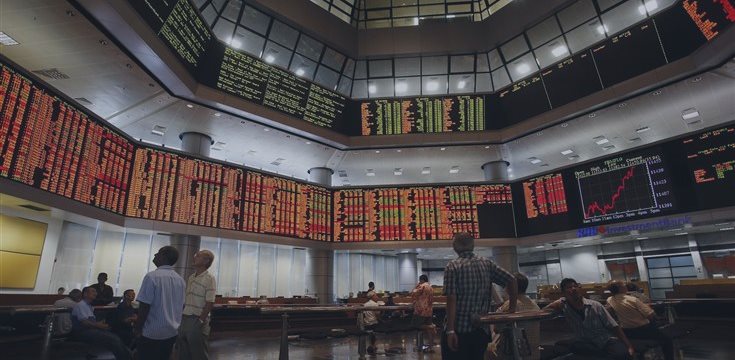Most emerging-market stocks climbed; Chinese equities posted the biggest two-day retreat in 18 months while Russia’s ruble stopped a three-day gain.
Hyundai Motor rose 2 percent in Seoul after Yonhap News said the carmaker may boost dividends.
Emaar Properties, developer of the world’s tallest skyscraper in Downtown Dubai, rose 2.9 percent as the emirate’s shares rallied after a 3.4 percent slump yesterday. Equity indexes in Saudi Arabia, Abu Dhabi and Qatar climbed at least 1.4 percent. The Nigeria Stock Exchange All Share Index jumped 5 percent.
Four out of 10 industry groups in the developing-nation measure jumped, led by consumer-discretionary shares and raw-material producers. Hyundai Motor climbed the most since Dec. 4 after Yonhap said the board will decide on a dividend increase early next year. The Kospi index gained 0.4 percent.
The Shanghai Composite slid 5 percent in two days. Citic Securities Co. and Haitong Securities Co. both lost 9.1 percent today. China’s securities regulator this month cautioned investors on share purchases and started inspecting some brokerages’ margin finance businesses.
The premium investors demand to hold emerging-market debt over U.S. Treasuries was unchanged at 342 basis points, according to JPMorgan Chase & Co. indexes.The MSCI Emerging Markets Index was little changed at
951.45 as of 12:15 p.m. in London, with 321 stocks rising and
257 falling. Brent crude dropped 2.5 percent in London after
surging yesterday on data that showed the U.S. economy grew at
the fastest pace in more than a decade. Brazil’s market and most
bourses in emerging Europe are closed today or a public holiday.
Standard & Poor’s yesterday said it may lower Russia’s credit
rating.
The ruble weakened for the first time in four days. S&P said it’s considering cutting Russia to junk, or below investment grade, for the first time in a decade, as a looming recession spurs concern that the nation’s banks will face mounting bad loans. The Micex Index added 0.4 percent after three days of losses.
“As S&P has clearly shown, the risk of downgrade has increased significantly, given that Russian authorities have been unable to stabilize the FX market and shield the economy/banking sector from the perfect storm,” Moscow-based ING Groep NV analyst Dmitry Polevoy said in an e-mail.
Next year “it will be a recessionary environment, with some more time with uplifted inflation, rising fiscal challenges and high ruble volatility. So, key is how the government will react,” he said.
The Indian rupee retreated 0.4 percent versus the dollar and the South African rand and Taiwanese dollar each fell 0.2 percent. The Hungarian forint strengthened 0.3 percent against the euro.
The MSCI developing-nation equities gauge has dropped 5.1 percent this year and trades at 11.1 times projected 12-month earnings, data compiled by Bloomberg show. The MSCI World Index has climbed 4 percent and is valued at a multiple of 15.7.
Photo: The Malaysian Insider



